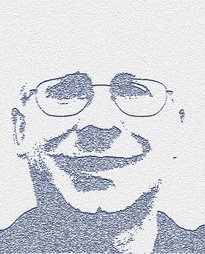Sunday, March 22, 2009
The 3 i's of decision making
Wednesday, March 18, 2009
A land of milk & honey
Whether it was the lure of a better life or an escape from an existing one, New Zealand held the hopes and dreams that drew people to its shores, whether it was in the last year, last 100 years ago or thousands of years ago.
The British Government rallied people in the early 1870’s to recruit:
“married agricultural laborers and single female domestic servants, provided they were ‘sober, industrious, of good moral character, of sound mind and in good health.”
Posters were put up & newspapers ran stories like this one from November 1873 in the Labourers’ Union Chronicle wrote,
“Not a farm labourer in England but should rush from the old doomed country to such a paradise as New Zealand – a good land – a land of oil, olives & honey – a land where in thou may’st eat bread without scarceness... Away then farm labourers, away! New Zealand is the Promised Land for you,
There was a flood of immigrants, being enticed by the promise of a better life coupled with a range of cheap & free fares.
My Great Great Grandfather was one of those, a farm labourer who chose to leave Ireland back in July 1876. I wondered what hope he & his family packed when they left an impoverished Ireland where demand for farm labourers had fallen by 16% due to cheap imports.
Imagine a 31 year old George McCombs & his wife Kate with their 2 sons James aged 2 years & Charles who was 2 months sailing for 93 days to the other side of the world.
Imagine you had been travelling on an old wooden boat for the last 3 months. I start feeling bored travelling in an aircraft for too long. The 18 hours it took to get the family to LA a few years ago seemed long enough, let alone 2,230 hours on a boat.
There were 290 people, including 81 from Ireland, on the boat that came into Wellington Harbour in October 1876. It’s hard to imagine what these pioneers would’ve thought about old Wellington.
The ship’s doctor recorded there were no accidents or sickness however 3 children under 2 died and one was born.
The ship’s passenger list was a mixture of families, single men and single women. There were farmers, carpenters, a couple of tailors, a 16 year old teacher, servants, dairymaids and a range of others from all over England, Ireland, Scotland and Wales.
New Zealand wasn’t everything that people expected and about 40% of those who arrived in the 1870’s left again.
The McCombs family arrived in Wellington harbour but made their home in Christchurch.
Who would’ve thought that their eldest son, James, who left school after standard 6, would represent the Lyttelton seat in Parliament from 1913 to 1933 and when he died, his wife, Elizabeth would succeed him as New Zealand’s first woman Member of Parliament until she died in 1935, and their son (my grandfather) Terry would then hold the seat until 1951.
I’m sure George & Kate didn’t expect these things to happen, but by taking a risk and choosing to follow a path into an unknown world, they created opportunities for their descendants. If they hadn’t taken that risk I wouldn’t be here today, just as if your ancestors hadn’t made certain decisions you wouldn’t be here either.
The dreams that our pioneering ancestors had still hold true for us today.
Although we are told the world’s economy is in a recession and some say on the brink of a depression, we certainly have a better quality of life than a farm labourer in 1876, when the life expectancy for a male was only 50 & females could expect to live until 54. Those born in 1876 only had an 86% chance of celebrating their first birthday. Today we are concerned about outliving our savings and many are already choosing to continue working beyond the retirement age of 65.
My 16 year old son was recently awarded a farming scholarship. He had a dream for his future – of one day owning his own farm. This is a dream that he had when he was 2 & he told me a story that he called “The Tractor Boy”. We had visited an uncle on his farm and that had sown the seed. He often talked about farming being in his blood. Part of me believes that this dream of my sons, could’ve also been the dream of his great, great, great grandfather while working on a farm back in Ireland, that even if he wouldn’t maybe his descendants could own their own farm one day.
I encourage you to reflect on the hopes and dreams that your ancestors had. The promised land we call New Zealand still holds great promise. That promise is held within us – it’s people – He Tangata.
Those hopes, dreams and aspirations exist for us all if we are prepared to take risks and look for the amazing opportunities on this sliver of land on the edge of the world, we have made our home.




